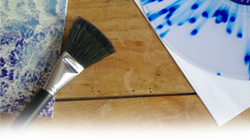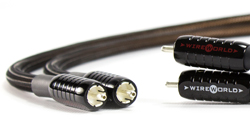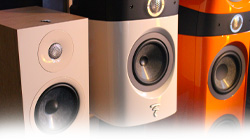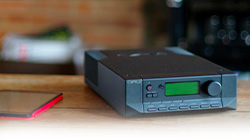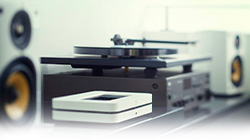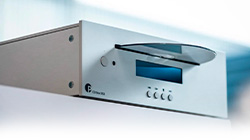
In a previous fact sheet on digital music, we were able to explain this new way of listening to music that is increasingly widespread in the Hi-Fi world. Here, we think it is essential to explain how to build up your musical library. That is, where to find the digital files from which you can listen to your music with audiophile quality.
The first and most obvious solution is to copy your CDs to your storage server so as to have them all in one place then listen to them on your Hi-Fi system. If you do not have any CDs, you can also acquire digital files by downloading them legally from online downloading platforms. One last way to listen to digital music is to list to it live on streaming sites.
How to I rip my CDs?
As we explained above, 'ripping' your CDs means copying them to a storage server such as a computer, a musical server, an NAS… (You can find out more in our fact sheet covering storage) so as to have them all in one place and be able to listen to them on a Hi-Fi system.
In order to 'rip' you CDs, you must use a software application. Many software applications are available but they do not all have the same offering: the formats supported and quality of encoding vary according to the software. So we alert you to the importance of the choice in software so as to restrict playback errors to a minimum (jitter) that reduce listening quality. Jitter results from a difference in reception of data during the encoding operation. The data must be processed at a time 'T', so that the ear cannot perceive errors coming from a difference during the processing of digital files.
Today, new tools can check that after the extraction of the original CD, the data copied to the disk is completely identical. For any asymmetry, the extraction is done again to correct any errors arising from encoding, compression, conversion or simply scratches on the CD. There are 2 very well-known quality ripping software applications, which are DbPoweramp and Exact Audio Copy (EAC). Their efficiency is proven by their many error detection and correction tests. Indeed, to identify and correct the errors, each one adjusts their play speed in relation to the inherent characteristics of the CD. Naturally, a CD in perfect condition will require much less processing time than a damaged CD that creates errors.
Audio files for which errors are absent or fully corrected will be ultra-faithful to the original signal. The adjective 'bit-perfect' is then used. This expression signals a perfect processing (or almost) of the analogue-to-digital conversion (timing and totality of the data). This principle is used to listen to digital files coming from an audiophile quality CD!
The two software applications which we have mentioned above, EAC and DbPoweramp, are the only ones that include the tools needed to ensure error-free encoding. The latter naturally have differences:
- Exact Audio Copy (EAC) is a free software that gives you access to very precise settings for ripping your CDs.
- DbPoweramp, costs €30 to allow you to access very easily and with a user-friendly interface with many settings for copying your CDs. The advantage of this software is that it can convert files from one format into another (e.g. FLAC to ALAC).
Music platforms (legal download)
The digitisation of audio supports gave rise to specialised sites that offer to download audio files legally. On these sites, you can therefore download your favourite tracks or albums to store them on your storage server. In addition to offering access to music without a physical support, these sites provide 'lossless' audio files, that is with lossless compression (you can find out more information in the digital music fact sheet). You can now acquire files with a quality equal to that of a CD (16 bit, 44.1 kHz) or greater (24 bit, 44.1 kHz to 24 bit, 192 kHz) reaching the sound quality from recording studios. These files are known as 'Studio Masters' and provide a richness of listening quality above that of CD performances.
These legal downloading platforms generally offer a wide choice of musical styles, but also the possibility of listening to a section of the music (streaming) before making a purchase (we talk about streaming sites after this article). Many sites allow you to obtain digital files, some of them are shown for you below.
- Qobuz:
Qobuz is high definition (HD) par excellence. Indeed, the site offers an extensive range of CD or studio master quality tracks or albums for you to listen with audiophile quality on your Hi-fi system. The site recently decided to withdraw the MP3 format offer to focus on the quality of the files available.
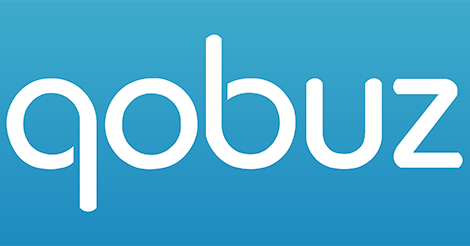
- Linnrecords:
The site belongs to the renowned Hi-Fi brand Linn and has the same desire as the Qobuz site to provide high-quality files, that is CD or even Studio Master quality. The language of the entire site is English.

- Hdtracks:
This English language site also provides high quality files: 24 bit/192 kHz or 24 bit/96 kHz. There are also presentations of each artist next to the track proposed.

- Deezer:
The Deezer online site offers the purchase of albums or tracks in MP3 formats. These tracks are available for download online after payment.

- Spotify:
Like the previous site, Spotify only offers tracks in MP3 format, and therefore of lower quality than the previous platforms we have presented. Moreover, the main difference of Spotify is that you must install it on your computer to be able to listen or download the music.

There are many other downloading platforms that can be found on the internet. We felt it was important to note down the most well-known ones that we can recommend.
Streaming
With the democratisation of Internet habits, the use of a digital walkman or Smartphone for listening to music, listening by streaming has become increasingly commonplace. Indeed, streaming designates the principle of sending live content. That is, it allows an audio or video stream to be played as it is broadcast. In contrast with the principle of downloading, streaming does not require all the data of a digital file to be downloaded for you to be able to listen to it. However, the digital data is downloaded temporarily and directly to the random access memory (RAM) of the computer (or Smartphone and other tablets) then processed by the latter for live playback. No digital file is therefore stored on the storage server you use.
The source for the principle of streaming is therefore data transmission over the computer link. In order to obtain a good sound quality for the base signal, the data transmission must be able to generate a sufficient period at the start to prevent any break or interruption when the file is being played. To achieve this, the streaming uses buffer memory zones where a few seconds of the data is stored in order to send the music with a slight delay. Placing data in the buffer memory therefore depends on the bandwidth of your internet connection. Playback will be smooth as soon as the internet bandwidth is high enough for data to be placed in buffer memory.
The following summarises the main internet bandwidths available according to your internet connection:
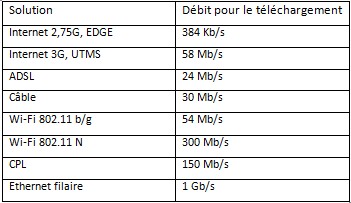
By using an EDGE network, you quickly realise that the bandwidth is not enough for a stable playback. Indeed, placing data in buffer memory is constantly interrupted and playback suspended. The UTMS network used by Smartphones has a fairly satisfactory playback but largely depends on the stability of the available network. Moreover, domestic networks (ADSL, cable) enable uninterrupted playback. However, the use of a Wi-Fi 802.11 b/g network can sometimes be insufficient as the bandwidth can be too low. We therefore recommend that you use the Wi-Fi 802.11 N network, which provides a greatly superior bandwidth. Finally, a wired network will provide a largely sufficient bandwidth for placing data in buffer memory without interruption and therefore with uncompromised playback.
There are several actors in the streaming world, proposing clearly differentiated offerings:
- Deezer
Deezer is currently one of the most well-known streaming sites. The catalogue of musical tracks offered by Deezer is almost 18 million and continues to rise.
You have three possibilities for listening in streaming mode. The first is free listening but is limited to your favourite tracks, with advertising interruptions. This is the basic Deezer offer with which you can listen to lower quality files. The site offers a paying subscription that allows you to unlimited listening access without advertising interruptions. Furthermore, this offer allows you to listen to high quality files (that is up to 320 kb/s). A final offer adds the possibility of listening to your playlists without even having access to an internet connection.
Moreover, the navigation interface used by Deezer is very simple to use, just like the mobile application that can be found on application download platforms.
- Spotify
As we stated above in this fact sheet, Spotify is both a music download platform but also a streaming site.
The site offers free listening of tracks under certain conditions: advertising interruptions and listening restricted to 10 hours a month. Its musical library has no less than 10 million tracks. 2 types of subscription are available: a first enabling unlimited listening of music without advertising interruptions, and the second that allows you to listen to tracks on all your devices (Smartphone, TV, etc.) without access to an internet connection.
The platform must be downloaded onto your computer for you to be able to listen to the music. Finally, the site gives you access to the playlists of your Facebook 'friends'.
- Grooveshark
The Grooveshark site is a totally free streaming service created by an American student in 2007. The catalogue has 7 million tracks available. This site offers tracks with mixed playback quality, that is, you can go from 128 kb/s to 192 kb/s from one to another.

- MusicMe
The French site gives free access to a catalogue of more 4.8 million tracks. These are broadcast at 128 kb/s, but can be downloaded at higher quality. The site has a wealth of information and its player is easy to use. The advantage of this site is that it give you access to over 75 internet radios.

There are many streaming sites, but we felt it was important to give you specific details for a few of these offers.
In conclusion, you can easily build up your music library today and listen to it in audiophile quality. Indeed, there are many solutions to give you what you are looking for.
![How do I choose a turntable ?]() How do I choose a turntable ? Discover
How do I choose a turntable ? Discover![How do I take care of my records?]() How do I take care of my records? Discover
How do I take care of my records? Discover![The different types of Hi-Fi cables and their role]() The different types of Hi-Fi cables and their role Discover
The different types of Hi-Fi cables and their role Discover![How to choose your Hi-Fi speakers?]() How to choose your Hi-Fi speakers? Discover
How to choose your Hi-Fi speakers? Discover![How do you choose the amplifier?]() How do you choose the amplifier? Discover
How do you choose the amplifier? Discover![How do you choose your dematerialized equipment?]() How do you choose your dematerialized equipment? Discover
How do you choose your dematerialized equipment? Discover![How to place your Hi-Fi devices?]() How to place your Hi-Fi devices? Discover
How to place your Hi-Fi devices? Discover![How to build a complete Hi-Fi system?]() How to build a complete Hi-Fi system? Discover
How to build a complete Hi-Fi system? Discover



